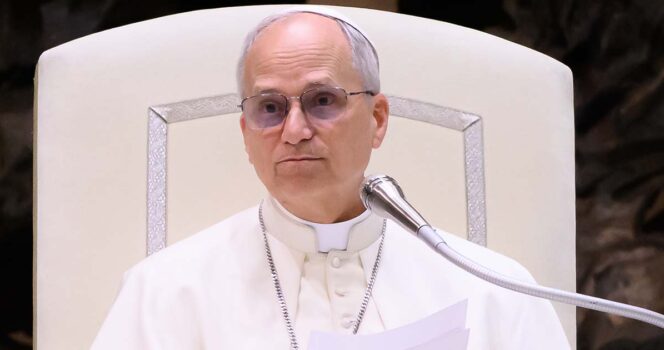As the Catholic Church continues to play a major role in global humanitarian and diplomatic efforts, the way the Pope and the Vatican address world powers like the United States remains a subject of public interest. From formal addresses to spontaneous blessings, the Church’s global messaging often blends spiritual leadership with social and ethical commentary.
In light of recent and historical papal engagements, this article examines how modern Popes—especially Pope Francis—have communicated with the U.S. and how the Church positions itself on issues like migration, social justice, and human dignity without aligning itself with partisan politics.
The Vatican and the United States: A Special Relationship
The United States is home to one of the largest Catholic populations outside of Latin America, and the relationship between the Holy See and the U.S. government has been consistently strong, especially since diplomatic ties were formally established in 1984.
Pope Francis, elected in 2013, has visited the U.S. and addressed Congress and the United Nations, speaking on topics such as:
- Climate change and environmental stewardship
- Economic inequality and poverty
- Human trafficking and global conflict
- The dignity of immigrants and refugees
Source: Vatican News – Pope Francis in the U.S.
How Popes Use Symbolic Language
Popes often use brief, symbolic language when responding to spontaneous media questions or public moments. For instance, during informal exchanges with journalists, Popes may issue brief blessings such as “God bless America” or emphasize universal messages of peace and compassion without providing detailed political commentary.
These moments often prompt reflection among observers, not because they reveal political leanings, but because they signal the Church’s moral and humanitarian priorities.
Example: Pope John Paul II’s 1979 and 1995 visits to the U.S. were accompanied by strong messages about human rights, religious freedom, and social cohesion.
Catholic Social Teaching and U.S. Engagement
The United States Conference of Catholic Bishops (USCCB) has been instrumental in translating Vatican priorities into local action. Their public policy work is guided by core Catholic social teachings, which include:
- The dignity of the human person
- The call to family and community
- The preferential option for the poor
- The dignity of work and workers’ rights
These principles are often echoed by Popes in communications to American Catholics and the broader public.
Source: USCCB – Catholic Social Teaching
On Immigration and Human Dignity
Immigration is one of the clearest areas where recent Popes have addressed the United States. Pope Francis, in particular, has called on nations to treat migrants and refugees with compassion and dignity, and to avoid language or policies that dehumanize vulnerable populations.
These views are not partisan but rooted in long-standing Catholic teaching about the sacredness of every human life.
“Migrants are not numbers: they are people,” Pope Francis said during the World Day of Migrants and Refugees.
Source: Vatican News – Migrant Messages
Not a Political Actor, But a Moral Voice
It is important to note that the Vatican does not support specific political parties or candidates. Instead, the Pope speaks from a moral and theological perspective, often challenging all sides of the political spectrum.
For example:
- On abortion and religious freedom, the Church affirms traditional moral teachings.
- On climate change and economic inequality, the Church calls for systemic reform, echoing ideas from Laudato Si’, Pope Francis’s encyclical on the environment.
This balanced approach aims to position the Church as a moral compass, not a political participant.
Historical Legacy: From Leo XIII to Francis
Modern papal messaging builds on a long legacy. One of the foundational documents of Catholic social thought is Rerum Novarum (1891), authored by Pope Leo XIII, which addresses the rights of workers, fair wages, and the responsibilities of both capital and labor.
This document continues to influence how the Church speaks to nations like the United States on issues of economic justice and human dignity.
Source: Vatican Archives – Rerum Novarum
Summary: Clear Values, Global Voice
While Popes may speak few words in public moments, those words often carry profound theological and moral meaning. The Catholic Church, through the Pope and the Vatican, maintains a consistent global message of peace, human dignity, and care for the marginalized.
For the United States—a nation of over 70 million Catholics—these messages offer both inspiration and challenge. They call on individuals, communities, and policymakers to consider moral responsibility in addressing the most pressing issues of our time.
Verified Sources
- Vatican News – Pope Francis in the U.S.
- United States Conference of Catholic Bishops
- Vatican Archives – Rerum Novarum
- Vatican News – World Day of Migrants and Refugees






